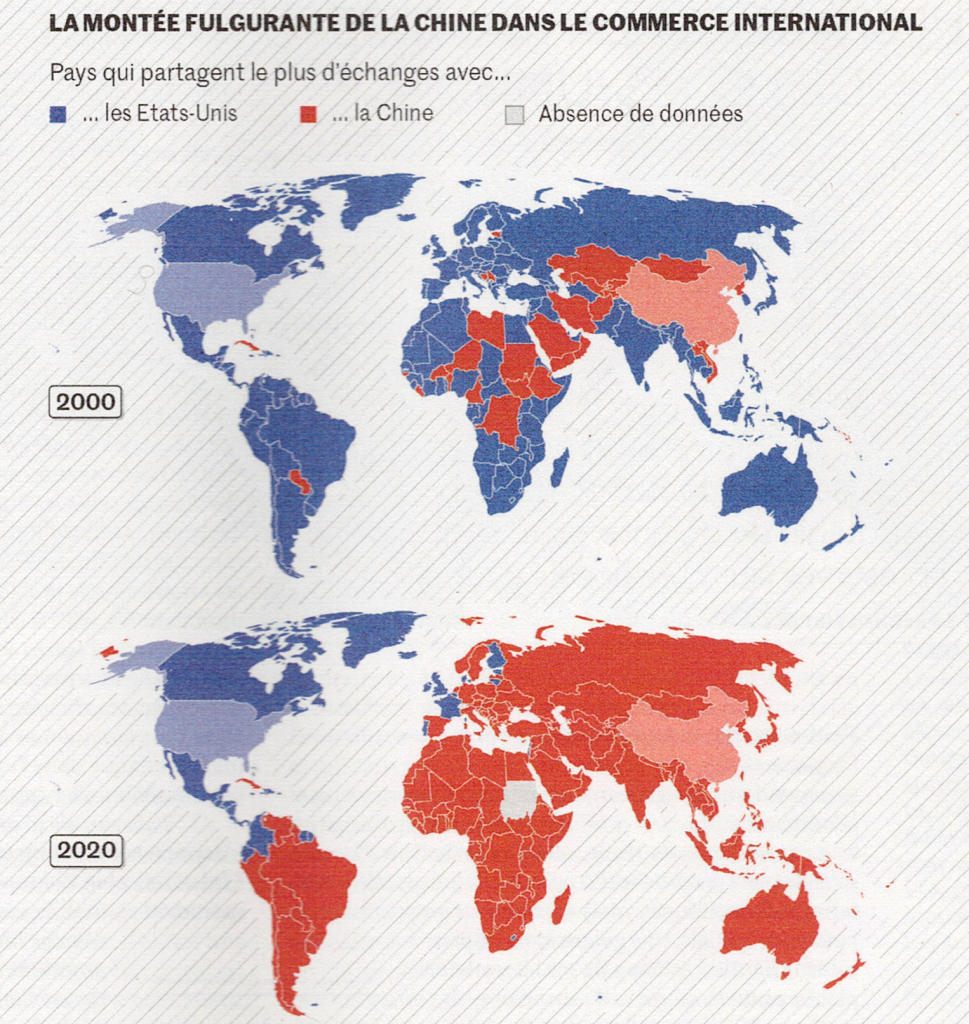We stopped the world for healthcare and sacrificed societal values and economic performance of entire countries to prevent the collapse of healthcare systems. It flows naturally that abundant resources and investments have been poured into healthcare services which made it the most booming sector growing out of the crisis. What will this look like going forward into the future?
Join us in Paris on June 29, 2022 – only very few spots left!
- How Do Health Systems Recover Services, Build Resilience, and Improve Health After the Shock of COVID-19? – PDF
A trend report of Roland Berger postulated that “Health & Healthcare” will drop to rank 2 of 6 trends in total. Number one is now “People & Society” (population, migration, values, education). Further down in the ranking we find “Environment & Resources (3rd rank), “Economics & Business (ranked 4th), “Technology & Innovation” (5th) and Politics & Governance (6th)1, all dependent on well-functioning “societies.”
What does this mean and how shall we tackle the trend of “society”? We must deal with people and what defines their being and doing – virtues & values. At last week’s conference on “critical care” that I had the pleasure to moderate and prepare content-wise we learned from a truly engaged profession of intensivists and hospital leaders that once we resolve technology, logistics, and finance, it is the “human factor” where we are hitting the wall (again). Or in other words: the efficient and effective use of capacities and resources depends on ongoing human collaboration during the process of care delivery. Consequently, we must tackle the process – how things are done – which then defines structure, and not the other way around as it is frequently done in politics where structures are defined ahead of processes as Ralf Kuhlen of Helios Health mentioned. The pandemic has shown that more or better resources do not necessarily translate into lower mortality. “How things are done among people” relies on underlying societal values and norms which have been deeply impaired during the pandemic.
A month ago, when I was speaking remotely at the Shenzhen ministry of health on leadership and communication I learned from my friend and colleague David Roye that the middle class of the society has grown in China. We all know that in most Westernized countries the middle class is vanishing. In addition, there seems to be no hunger today in China – an important fact considering the world’s food discrepancies which are nowadays also affecting formerly middle-class families in industrialized countries.
Around the same time in May the French editing house “Le Monde” issued a journal on “global geopolitics in 40 maps”2 of which the following shows “China’s meteoric rise in international trade” by comparing countries’ major commercial exchange with the United States (in blue) to that with China (in red).

Without much thinking or explanation needed this map reflects a very strategic move over the last 20 years which has shifted dramatically global commercial power structures. In addition, we must keep in mind that most global natural resources are owned by the “red” countries of the world whereas the “blue” countries consume the largest part of global resources. One must assume a certain sense of collective naiveité of so far well-off societies that continue to aggravate the global imbalance, not considering what people in other parts of the world will do when their children die of hunger while those countries at the same time own most natural resources. Be prepared that they will start moving or cutting access to resources as it has already happened.
In several of my perspectives I have mentioned that unlimited growth in a limited world is impossible. And a “societal gap” can only be diminished if we start accumulating/ consuming less and sharing more – not only locally but globally. Billionaire wealth rose more in 2 years than in the last 23 years combined.3 The gap widened even more, and the middle class is vanishing in many countries. It is less about a comparison between “haves” and “have-nots”, but rather about pointing out the crucial importance of the “in-betweens” who have historically built the basis for a society and carried its values and cultural norms.
Looking back at the red parts of the map it is a long-term strategic investment paired with a strong societal base that carries China’s global expansion. The “West” seems to be lost and faced with a weakened societal foundation that raises fears of internal tumult (as seen on January 6, 2021, when the US Capitol was attacked). But what does this “societal” base look like? It is about values & virtues that have been lost in the age of individualism. Besides all the intellectual and practical expertise that we have built in Westernized countries it seems to me that we have not sufficiently addressed the cultivation or maybe reinvention of the values & virtues that provide stability to our societies that in turn sustain the functioning of healthcare systems and economies. Our societies are today “unhealthy” and imbalanced.
What and who can help to shape the future of Westernized (and global) societies if we would like to become active and care for a “healthy” society? A recent opinion piece of Tom Harford in the Financial Times provides intriguing insights. He considers “intellectual virtues to help sharpen your thinking skills”4. Building on work of Barry Schwartz who published an opinion piece on “What ‘learning how to think’ really means”5 he argues that essential traits are not necessarily intellectual but have a fundamental moral dimension: love of truth; honesty about one’s own feelings; fair-mindedness; humility and a willingness to seek help; and finally, wisdom – not taking any of these virtues to excess. He takes these virtues as the basis for discussion with leading scholars in the field who then added the importance of range, systematic thinking, humanity, humor, getting things done, persuasiveness, and curiosity.
If all these traits are considered important for the art of thinking and being good citizens in the society, the question is raised who should teach those virtues and how they could be taught. Unfortunately, Barry Schwartz discovered that professors and teachers are not inclined to teach these fundamental virtues which might explain why they have been lost to a certain degree and how societies have been weakened consequently. So, who should take on the role to teach or rather cultivate those virtues?
I believe the answer can only be that we all as members of a society and in our various roles as family members, friends, and employers are responsible to cultivate societal values if we aim at fixing the widening societal gap and the vanishing cultural base that relies on these virtues & values in a post-pandemic world. I’d like to end today’s perspective by raising three questions for reflection:
- Can we think and plan ahead although it is against human nature if we are not in crisis mode and comfortable in the current state of being? We might as well reflect on our experiences and not fall back to old habits. We learned last week at the critical care conference that collaborations have ended in many countries. They only continue to exist if human and personal values drive them as Julien Pottecher nicely described. We will discuss “Pandemic Recovery Priorities: Addressing inequities, improving resilience, and recovering services” to be better prepared for the future at the “International Forum exploring today’s issues and future priorities for health care systems” on June 29 in Paris.
- Do we believe that the extreme shortage of human resources in critical care was solely due to the pandemic and can be disregarded now as we’re “getting back to normal”? It might just be the prelude to what is hitting the system in general – we already hear stories of demise from other medical surgical specialties, leaving alone the impact of the ageing population in all westernized countries. We are facing a humantific blackout and health delivery systems are in desperate need of finding, training, and recruiting nurses. We will talk about this and other healthcare management issues also next week on the panel “Health Systems in Transition: Impact of Pandemic on Care Delivery Practice”.
- Can we expect that the mental health issues that emerged during the pandemic will disappear in the “new normal” considering the global context I described – gaps, imbalances, desperateness due to hunger and lost livelihoods and many more societal failures? Mental healthcare has been and will be the most critical issue to tackle with respect to the general population but also to address healthcare worker burn-out. And we can be sure that official statistics are underestimating the actual prevalence considerably. The panel “Deep Dive: Mental Health Care Provision, Policy, and Practical Matters to Address the Global Crisis” at next week’s conference will discuss these issues and I’m very proud to share some insights from my own work.
The Commonwealth Fund New York and the Health Foundation UK are collaborating with us on the above named “International Forum exploring today’s issues and future priorities for health care systems” on June 29, 2022, in Paris. Please join us and engage into the discussion. Cultivating the virtues of a future society will be essential for high performing healthcare systems and economies in a post-pandemic era. Let’s shape society together!
Stay tuned for any updates @KatharinaJanus!

Prof. Dr. Katharina Janus
Founder and Managing Director of the Center for Healthcare Management, Paris, France and at Columbia University, New York, NY, USA
President and CEO, ENJOY STRATEGY, Europe & US
https://katharinajanus.com
1 Roland Berger: Trend Compendium 2050 – Six megatrends that will shape the world.
2 Le Monde Hors-Série : La géopolitique mondiale en 40 cartes, Mai 2022
3 https://www.businessinsider.in/business/news/billionaire-wealth-rose-more-in-2-years-than-in-the-last-23-years-combined/articleshow/91734674.cms
4 Tim Harford, Intellectual virtues to help sharpen your thinking skills, FT Weekend Magazine, June 11/12, 2022.
5 Barry Schwartz, What ‘learning how to think’ really means, The Chronicle of Higher Education, June 18, 2015

![[PERSPECTIVE by @katharinajanus] On Society / Join us in Paris on June 29!](https://katharinajanus.com/wp-content/uploads/2020/06/IMG_7809-scaled.jpg)

